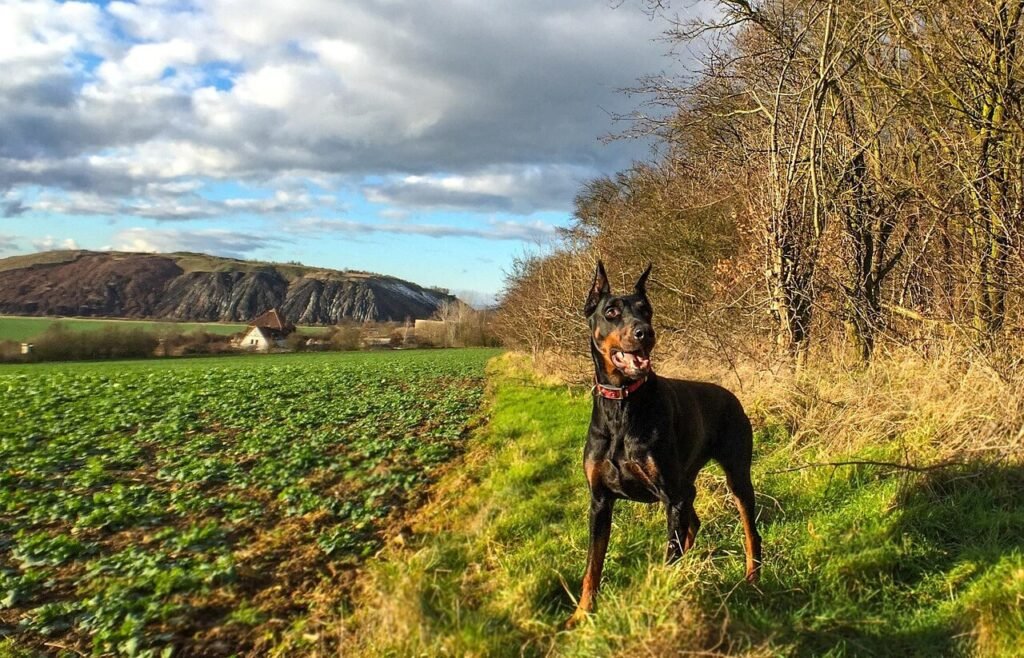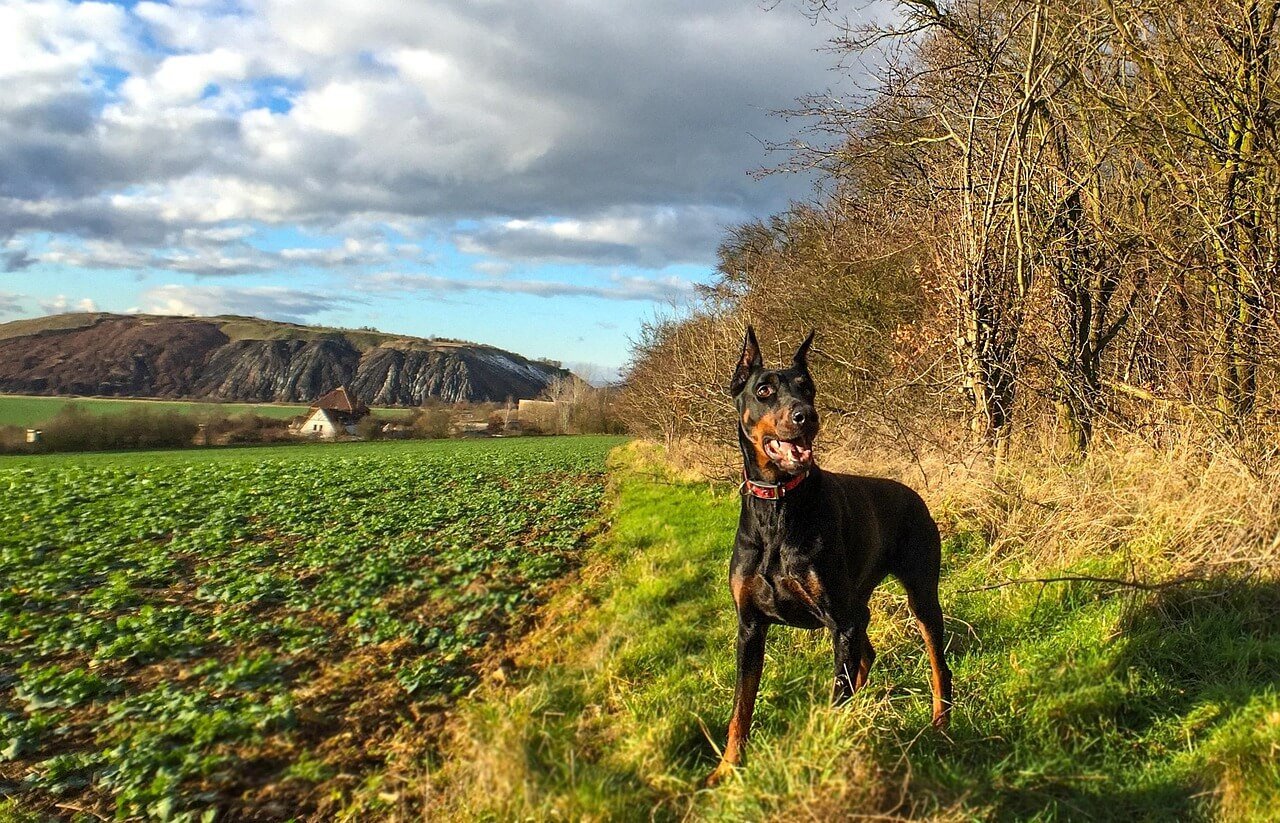When Your Dog Suddenly Develops a Cloudy Eye
A cloudy eye in your dog can be alarming, but it’s important to stay calm and take action. While some causes of cloudiness are harmless and temporary, others may indicate underlying health issues that require prompt veterinary attention. Understanding the potential reasons behind this symptom, recognizing warning signs, and knowing how to respond can make all the difference for your furry friend’s well-being. In this guide, we’ll explore everything you need to know about cloudy eyes in dogs, from common causes to treatment options, so you can ensure your pup gets the care they deserve.
Common Causes of Cloudy Eyes in Dogs
Cloudy eyes in dogs can stem from a variety of conditions, ranging from mild to severe. Identifying the root cause is crucial for determining the appropriate course of action.
Cataracts:
Cataracts cause the lens of the eye to become cloudy or opaque, often leading to vision impairment. They are more common in older dogs or certain breeds predisposed to the condition.Corneal Ulcers:
These painful sores on the surface of the eye can result from trauma, infections, or foreign objects, causing cloudiness and discomfort.Glaucoma:
Increased pressure within the eye can lead to a cloudy appearance, along with redness, swelling, and potential blindness if left untreated.Nuclear Sclerosis:
A normal aging process where the lens becomes denser and appears cloudy. Unlike cataracts, nuclear sclerosis doesn’t typically affect vision significantly.Conjunctivitis (Pink Eye):
Inflammation of the conjunctiva can cause cloudiness, redness, and discharge, often due to infections or allergies.
Understanding these causes helps you recognize when your dog needs immediate veterinary care versus when the issue might resolve on its own.

Signs That Your Dog’s Cloudy Eye Requires Immediate Attention
While not all cases of cloudy eyes are emergencies, certain symptoms warrant urgent veterinary intervention. Knowing what to look for can save your dog from unnecessary pain or complications.
Excessive Tearing or Discharge:
Watery eyes or unusual discharge, especially if yellow or green, may indicate an infection or injury requiring treatment.Squinting or Pawing at the Eye:
If your dog frequently squints or paws at their eye, it could signal discomfort or irritation caused by an underlying issue.Redness or Swelling Around the Eye:
Inflammation around the eye area suggests possible trauma, infection, or glaucoma, which need professional evaluation.Changes in Behavior or Mobility:
Sudden lethargy, confusion, or difficulty navigating spaces may point to vision problems linked to the cloudy eye.Rapid Onset of Cloudiness:
If the cloudiness develops suddenly, it could indicate acute conditions like glaucoma or corneal ulcers, which demand immediate care.
Recognizing these warning signs ensures your dog receives timely treatment, preventing further complications.
Check this guide 👉Cat Scratched Dog Eye White Spot: Best 7 Expert Tips!
Check this guide 👉Dog Eye Injury Treatment: Best 7 Expert Tips!
Check this guide 👉Dog Eye Blood Vessel Burst: Best 7 Expert Tips!
Causes of Cloudy Eyes in Dogs | Symptoms to Watch For |
|---|---|
Cataracts | Gradual loss of vision, milky white appearance |
Corneal Ulcers | Squinting, pawing, sensitivity to light |
Glaucoma | Redness, bulging eye, obvious pain |
Nuclear Sclerosis | Bluish-gray haze, no significant vision changes |
Conjunctivitis | Redness, swelling, excessive tearing |
Steps to Take When You Notice a Cloudy Eye
If your dog develops a cloudy eye, acting promptly and appropriately can help prevent further issues. Follow these steps to address the situation effectively.
Observe Carefully:
Take note of any additional symptoms, such as redness, discharge, or behavioral changes, to share with your veterinarian.Avoid Self-Treatment:
Refrain from using over-the-counter medications or attempting to clean the eye without professional guidance.Prevent Further Injury:
Keep your dog away from bright lights, sharp objects, or activities that could worsen the condition.Schedule a Vet Appointment:
Contact your veterinarian as soon as possible to discuss the symptoms and arrange an examination.Prepare for Diagnosis:
Be ready to provide details about your dog’s medical history, diet, and recent activities to aid in diagnosis.
Taking these proactive measures ensures your dog receives accurate diagnosis and treatment tailored to their specific needs.
Treatment Options for Cloudy Eyes in Dogs
The treatment for a cloudy eye depends on the underlying cause, and your veterinarian will recommend the best approach based on their findings. Here are some common treatment options:
Medications for Infections:
Antibiotics or anti-inflammatory drugs may be prescribed to treat bacterial infections or reduce inflammation.Surgery for Cataracts or Glaucoma:
Advanced cases of cataracts or glaucoma often require surgical intervention to restore vision or relieve pressure.Topical Treatments for Corneal Ulcers:
Specialized eye drops or ointments can promote healing and protect the cornea from further damage.Monitoring for Nuclear Sclerosis:
While no treatment is needed for age-related cloudiness, regular check-ups ensure there are no secondary complications.Lifestyle Adjustments:
Protecting your dog’s eyes from irritants, providing a balanced diet, and maintaining overall health can support long-term eye wellness.
With proper care and treatment, many dogs recover fully or adapt well to changes in their vision.
Preventive Measures for Healthy Eyes
Prevention is always better than cure when it comes to your dog’s eye health. Taking proactive steps can reduce the risk of developing cloudy eyes or other ocular issues.
Regular Check-Ups:
Schedule routine veterinary exams to catch potential problems before they escalate.Protect from Trauma:
Use protective gear during outdoor activities to shield your dog’s eyes from debris or injuries.Maintain a Balanced Diet:
Ensure your dog receives essential nutrients like omega-3 fatty acids, which support eye health.Clean Their Eyes Gently:
Use a damp cloth to wipe away dirt or discharge around the eyes regularly.Monitor for Allergies:
Watch for signs of allergic reactions, which can cause irritation and cloudiness in the eyes.
By incorporating these preventive measures, you can safeguard your dog’s vision and overall eye health.
Breeds Prone to Eye Issues
Certain dog breeds are genetically predisposed to eye problems, making them more likely to develop cloudy eyes or related conditions. Awareness of these predispositions can help owners take extra precautions.
Poodles:
Known for developing cataracts and progressive retinal atrophy (PRA).Cocker Spaniels:
Prone to glaucoma and dry eye syndrome, both of which can cause cloudiness.Bichon Frises:
Often experience cataracts and corneal dystrophy, affecting clarity of vision.Shih Tzus:
Susceptible to corneal ulcers due to their prominent eyes.Boxers:
At higher risk for uveitis, an inflammatory condition that can lead to cloudiness.
Owners of these breeds should prioritize regular eye exams and remain vigilant for early signs of trouble.
How to Comfort a Dog with Eye Problems
Dogs experiencing eye issues may feel anxious or uncomfortable, and providing comfort can ease their distress while they heal. Here are some ways to support your pup during this time:
Create a Quiet Space:
Allow your dog to rest in a calm, dimly lit area to reduce stress and avoid straining their eyes.Limit Physical Activity:
Restrict vigorous play or exercise that could exacerbate the condition or cause further injury.Administer Medications as Directed:
Follow your vet’s instructions carefully when giving eye drops or oral medications.Offer Gentle Reassurance:
Speak softly and spend quality time with your dog to reassure them during recovery.Use an Elizabethan Collar:
If your dog tries to rub or scratch their eye, use a cone to prevent self-injury.
By focusing on comfort and care, you can help your dog recover more quickly and minimize their discomfort.
FAQ Section
Can a cloudy eye in dogs go away on its own?
It depends on the cause. Minor irritations may resolve independently, but persistent cloudiness requires veterinary attention.
Are cataracts painful for dogs?
Cataracts themselves aren’t painful, but they can lead to secondary issues like inflammation, which may cause discomfort.
How quickly should I see a vet if my dog’s eye becomes cloudy?
It’s best to schedule a vet visit within 24–48 hours to ensure timely diagnosis and treatment.
Can diet affect my dog’s eye health?
Yes, a balanced diet rich in antioxidants like vitamins C and E supports eye health and reduces the risk of certain conditions.
Is surgery always required for glaucoma in dogs?
Not always, but advanced cases often require surgical intervention to relieve pressure and preserve vision.
Prioritizing Your Dog’s Eye Health
A cloudy eye in your dog may seem concerning, but understanding its causes and knowing how to respond can alleviate stress for both you and your pet. Whether it’s a minor issue or something more serious, timely veterinary care is key to ensuring your dog’s comfort and quality of life. By staying vigilant, addressing symptoms early, and following your vet’s recommendations, you can help your furry companion maintain healthy eyes and continue enjoying life to the fullest. Remember, your dog relies on you to advocate for their well-being—so trust your instincts and seek help when needed.
Pemphigus Erythematosus in Cats: Best 7 Expert Tips! – Learn to recognize symptoms, manage flare-ups, and improve your cat’s quality of life.
Pemphigus Erythematosus in Dogs: Best 7 Expert Tips! – Discover causes, symptoms, and treatment options to manage this autoimmune skin condition effectively.
Cat Tympanic Membrane: Best 7 Expert Tips! – Learn how to protect your cat’s eardrum, spot issues early, and ensure lifelong auditory health.
Dog Tympanic Membrane: Best 7 Expert Tips! – Learn how to protect your dog’s eardrum, spot issues early, and ensure lifelong ear health with expert advice.





